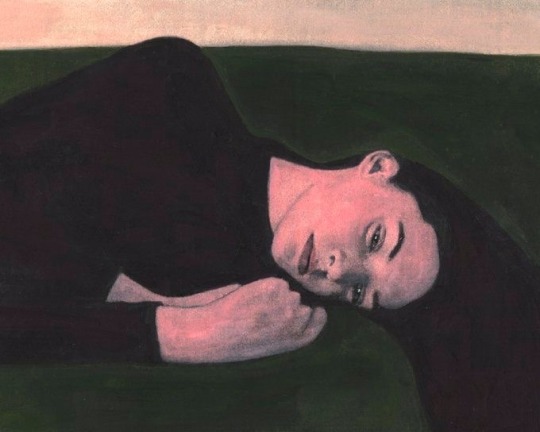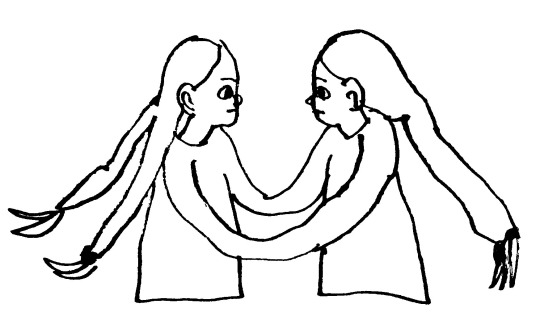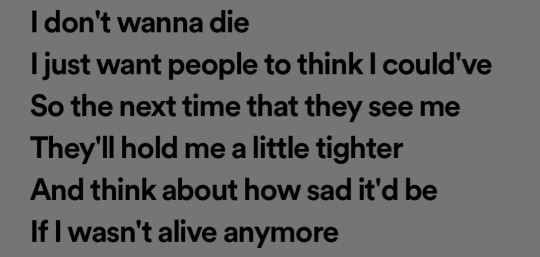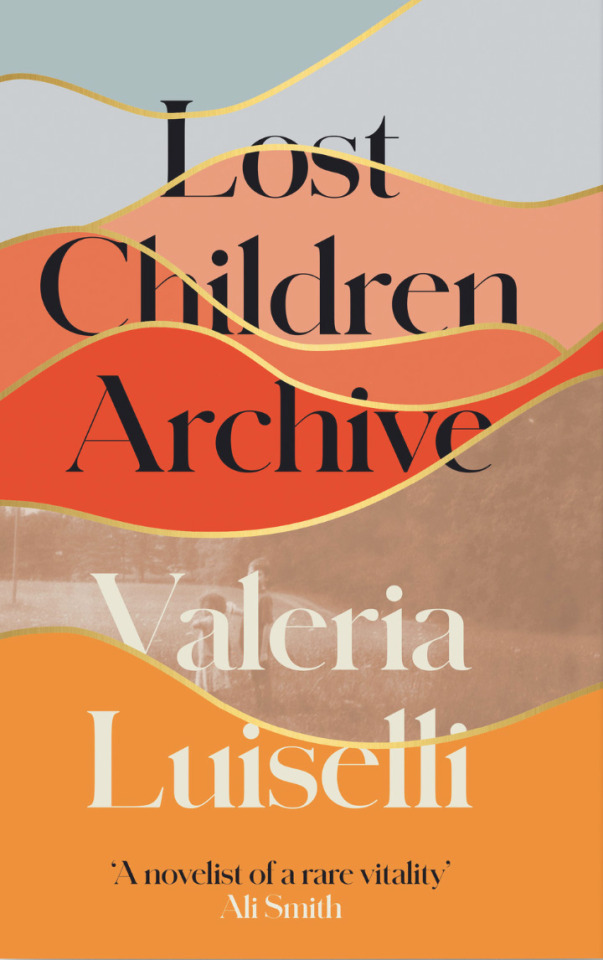#Valeria Luiselli
Explore tagged Tumblr posts
Text








Thinking of you, even now
Darling, I Left the House, by Joseph Brodsky || Nickie Zimov || Faces in the Crowd, Valeria Luiselli || Garden of Words, Makoto Shinkai || Love, Alex Dimitrov || This is Not a Love Poem, Caitlyn Siehl
#web weaving#dark academia#quotes#on love#breakup#missing someone#but living without them#poetry#romantic academia#chaotic academia#alternative academia#poems and quotes#academia#chaotic academic aesthetic#prose#joseph brodsky#nickie zimov#valeria luiselli#makoto shinkai#garden of words#alex dimitrov#caitlyn siehl
4K notes
·
View notes
Text







I MISS YOU MORE THAN I REMEMBER YOU; ON FATHERS AND THEIR GHOSTS
valeria luisielli // cecilia corrigan // clementine von radics // ocean vuong // nicola yoon // catherine lacey // leanna firestone
#.w#on fathers#web weaving#webweaving#valeria luiselli#cecilia corrigan#clementine von radics#ocean vuong#nicola yoon#catherine lacey#leanna firestone#poetry#words#quotes#excerpts
4K notes
·
View notes
Text

“Desierto sonoro” de Valeria Luiselli
#desierto sonoro#valeria luiselli#books#bookgram#bookgasm#booklover#instabooks#book#book with me#leo autoras#autoras#lectoras#boys reading#sigilo#subte#leyendo#escritoras#mujeres que escriben#wattpad#leo y comparto#editoriales#bibliofilos#bibliofilia#currently reading#booktuber#book tok#booktok#book toker#livros#literatura
5 notes
·
View notes
Text
I also like the constant tension in those pictures, a tension between document and fabrication, between capturing a unique fleeting instant and staging an instant. She wrote somewhere that photographs create their own memories, and supplant the past. In her pictures there isn’t nostalgia for the fleeting moment, captured by chance with a camera. Rather, there’s a confession: this moment captured is not a moment stumbled upon and preserved but a moment stolen, plucked from the continuum of experience in order to be preserved.
Lost Children Archive by Valeria Luiselli
2 notes
·
View notes
Text
“I had made the very common mistake of thinking that marriage was a mode of absolute commonality and a breaking down of all boundaries, instead of understanding it simply as a pact between two people willing to be the guardians of each other’s solitude.”
― Valeria Luiselli, from Lost Children Archive
9 notes
·
View notes
Text
read a little over half of The Story of My Teeth by Valeria Luiselli tonight and was surprised how much I ended up liking it. Looking forward to finishing it tomorrow or the day after tomorrow
#usually don't like the absurd confusing acant garde stuff in novels but it ended up working#valeria luiselli
3 notes
·
View notes
Text
“Because – how do you explain that it is never inspiration that drives you to tell a story, but rather a combination of anger and clarity?"
Valeria Luiselli
0 notes
Text
R.F. Kuang and Valeria Luiselli
Dear Reader,
“That's just what translation is, I think. That's all speaking is. Listening to the other and trying to see past your own biases to glimpse what they're trying to say. Showing yourself to the world, and hoping someone else understands,” (Kuang, Babel, or the Necessity of Violence) R. F. Kuang takes her readers on a journey of heroics, tragedy, and love all in the name of translation. Babel follows the story of Robin, not his real name, and his three friends as they attend Oxford in an attempt to further their magical world that relies on the work of translations.
“Nice comes from the Latin word for “stupid”,’ said Griffin. ‘We do not want to be nice,” (Kuang, Babel, or the Necessity of Violence). It’s interesting to know where our modern words come from, and interesting to know how translation works. Babel discusses the power of language through actual magic and teachings, as well as how dangerous those words can be when we don’t truly understand their meaning.
“Betrayal. Translation means doing violence upon the original, means warping and distorting it for foreign, unintended eyes. So then where does that leave us? How can we conclude, except by acknowledging that an act of translation is then necessarily always an act of betrayal?” (Kuang, Babel, or the Necessity of Violence). Kuang brings to my attention that translation isn’t necessarily an exact word for word translation of what’s said or written. Translation is actually changing the words to maintain the meaning of what’s being said, to maintain the tone and emotion and what the original writer is trying to convey. “So, you see, translators do not so much deliver a message as they rewrite the original. And herein lies the difficulty - rewriting is still writing, and writing always reflects the author's ideology and biases.” (Kuang, Babel, or the Necessity of Violence). So, what does staying true to the meaning mean when we all have our own interpretations of the meaning?
“‘Why did you come to the United States?’ That’s the first question on the intake questionnaire for unaccompanied child migrants,” (Luiselli, 7). Such a simple question that starts a long list of questions, all of which are harder than the last. This one seems to be good to start with, but how would a child answer? How do you translate and interpret the horrors and atrocities these children face? How do you do their story justice while remaining true to their innocent words and naivety about the world around them? This is what Luiselli tries to tackle in her novel Tell Me How It Ends, in discussing the lives of immigrant children seeking asylum in the United States.
"Thousands have died or been gravely injured aboard La Bestia, either because of the frequent derailments of the old freight trains or because people fall off during the night..."(Luiselli, 19). The thing about this particular novel is that translation and interpretation is a big part of it. However, there are also a lot of facts, and this is one of those facts. In their journey to America, these people and children faced many atrocities that didn’t need interpretation. Sticking to the minimalistic language allows for the real horrors to stand out on their own.
"I crossed the border by foot. She swam across the river,” (Luiselli, 62). What I appreciate about Luiselli’s writing is that while she is translating the stories of these children, she keeps her language as simple as possible. It’s almost like she’s aware that these are children and they wouldn’t articulate themselves in such a way, thus she kept the translations true to their innocence. In turn, what this does is convey how young these children really are, and how horrible their situation is for people at that age. Doing this makes me trust Luiselli to tell these stories to the best of her ability, because she’s not adding flourishes or fluff to the interpretation. In all of her translations she sticks to the facts of what she’s being told, and she keeps the word choices simple because that’s probably what the children had said. The children most likely didn’t discuss into detail what they saw, or at least not in a way that we might understand. We see criminals or delinquents, they see monsters.
Babel, or the Necessity of Violence by R. F. Kuang opens up the discussion of translation, interpretation, and how those lines blur between them. Valeria Luiselli translates the stories of immigrant children and what kind of cruelty they faced in search of safety. Luiselli uses simplistic language in her translations to remain as close to the original meaning and words as possible, keeping her writing faithful to the stories of these children.
-Grace Sofia
#lo siento journals#reading#book review#book blog#book recommendation#books#book reviews#book recs#bookblr#creative writing#writing#rf kuang#valeria luiselli
0 notes
Text
Valeria Luiselli – Vertel me het einde
Denk dat dit essay grotendeels autobiografisch is. Heb een geweldig boek van haar gelezen, een novelle waar ik niet veel van begreep. Haar passie is duidelijk, haar hart zit op de juiste plek. In dit essay gaat het over de vragen die minderjarige vluchtelingen krijgen voordat wordt besloten of ze mogen blijven in de VS. Daar zitten logische vragen tussen, maar ook absurde. De hele procedure is…
0 notes
Text
Awfully Far Out, but Not Yet Drowning
Charles Bukowski, Stevie Smith, et al.: 'Awfully Far Out, but Not Yet Drowning'

[Image: “Badlands Seascape,” by John E. Simpson. (Photo shared here under a Creative Commons License; for more information, see this page at RAMH.)] From whiskey river: Dinosauria, We (excerpt) We are Born like this Into this Into these carefully mad wars Into the sight of broken factory windows of emptiness Into bars where people no longer speak to each other Into fist fights that end as shootings…
View On WordPress
#Maxims for Nostalgists#Charles Bukowski#Tennessee Williams#Valeria Luiselli#Stevie Smith#making sense of the world#making nonsense of the world#the social contract#making peace
0 notes
Text

Los ingrávidos, Valeria Luiselli
1 note
·
View note
Text






Tell Me How it Ends by Valeria Luiselli
Luiselli’s writing style throughout this essay was consistently understandable and attractive to me. She evokes empathy even with limited perspectives. The title, referring to her daughter asking her “Tell me how it ends” as she recounts stories of the children she encounters, is rather heartbreaking with the reminder that the victims of violence and neglect from the countries they came from and continue to suffer through the immigration system (no matter how much patriots of the US want to defend its benefits), they are just children who are undeserving of the harm they’ve suffered and are in need of a better life. They shouldn’t have to justify their need for help and prove their trauma; the 40 questions, while helpful for building a defense case, are understandably hard to answer and are lacking empathy in essence (although not from the nonprofit organizations that created them, but rather from the system that demands them).
My only wish would have been for it to be more extended and more in-depth about the more memorable cases she took on. However, that’s also understandable given the way she relates them to her own immigration process. The question asked most, in the end, is this; “Why did they/you/I come to the United States?”
It draws attention to a system barely any mainstream news media pay attention to anymore, at least from what I’ve seen, mainly since I also lived in the States during the time of Trump’s inauguration and heard the news of “Mexico paying for a wall” and the immigration crisis. I simply didn’t understand and suffered none of its consequences since I was so young then, and I had the privilege of holding an American passport and citizenship because my mother purposely traveled there when giving birth to me. It makes me want to do better, which makes the hopeful note at the end all the more impactful and admirable.
0 notes
Text

"Desierto sonoro", de Valeria Luiselli
#desierto sonoro#valeria luiselli#sigilo#escritoras#leyendo#autoras#books#book#bookgram#bookgasm#booklover#libros#buenos aires#argentina#subte#subway#currently reading#reading#booktok#bookriot#amo leer#leer#literatura#wattpad#book photo#book pic#librerias#librerías#bookselfie#booself
5 notes
·
View notes
Text
That poem ends with a vow to the passing stranger: “I am to see to it that I do not lose you.” It’s a promise of permanence: this fleeting moment of intimacy shared between you and me, two strangers, will leave a trace, will reverberate forever. And in many ways, I think we kept that promise with some of the strangers we encountered and recorded over the years—their voices and stories coming back to haunt us. But we never imagined that that poem, and especially that last line, was also a sort of cautionary tale for us. Committed as we were to collecting intimacies with strangers, devoted as we were to listening so attentively to their voices, we never suspected that silence would slowly grow between the two of us. We never imagined that one day, we would have somehow lost each other amid the crowd.
—from Lost Children Archive by Valeria Luiselli.
#lost children archive#valeria luiselli#this was sitting in my drafts... this novel was really good i highly recommend it
0 notes
Photo

Lost Children Archive
By Valeria Luiselli.
Design by Jo Walker.
1 note
·
View note
Text
“She wrote somewhere that photographs create their own memories, and supplant the past. In her pictures there isn’t nostalgia for the fleeting moment, captured by chance with a camera. Rather, there’s a confession: this moment captured is not a moment stumbled upon and preserved but a moment stolen, plucked from the continuum of experience in order to be preserved.”
― Valeria Luiselli, from Lost Children Archive
7 notes
·
View notes